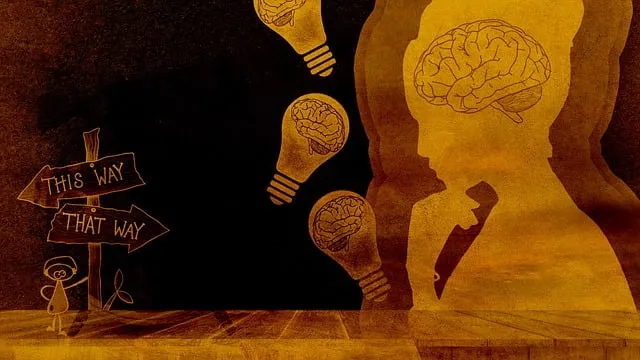In today's digital era, mental wellness apps like Castle Rock Kaiser's programs are gaining prominence as vital tools for addressing a wide range of psychological needs. With growing awareness about mental health, these apps offer personalized solutions through features such as therapy, mood tracking, and mindfulness exercises. Key to their success is tailoring these tools to diverse user groups, including age, cultural background, and specific conditions. Castle Rock Kaiser's innovative programs leverage digital platforms for stress reduction and mindfulness meditation, providing comprehensive support for a broad spectrum of users. The development process involves understanding user needs, designing intuitive interfaces, incorporating evidence-based practices like Mind Over Matter principles and Self-Awareness Exercises, rigorous testing, and continuous user feedback to ensure effectiveness and appeal. These apps cater to the growing demand for accessible, private therapeutic access, making emotional well-being more manageable.
In today’s digital era, mental wellness app development is revolutionizing access to support. This comprehensive guide explores the growing need for these applications, highlighting successful initiatives like Castle Rock Kaiser’s approach to digital mental wellness programs. We delve into essential features, development processes, and market analysis strategies. Understanding the unique requirements of mental health apps is crucial for fostering effective solutions that cater to users’ diverse needs. Learn how to create impactful applications that make a tangible difference in people’s lives, drawing inspiration from pioneers like Castle Rock Kaiser.
- Understanding Mental Health App Needs: A Comprehensive Overview
- Castle Rock Kaiser's Approach to Digital Mental Wellness Programs
- Essential Features for Effective Mental Health Applications
- Development Process: From Concept to Launch
- Market Analysis and User Engagement Strategies for Mental Wellness Apps
Understanding Mental Health App Needs: A Comprehensive Overview

In today’s digital age, mental wellness apps have become a vital tool for addressing diverse psychological needs. With the rise in awareness about mental health issues, there is an increasing demand for accessible and personalized solutions. Apps like Castle Rock Kaiser’s mental health programs cater to this growing need by offering a range of features tailored to support users’ emotional well-being. These platforms not only provide access to therapy and counseling but also incorporate tools for tracking moods, practicing mindfulness, and connecting with supportive communities.
Understanding the unique needs of different user groups is essential in app development. This involves considering factors such as age, cultural background, and specific mental health conditions. For instance, apps designed for adolescents may need to integrate features focused on self-esteem and peer relationships, while those targeting older adults could prioritize social engagement and memory-enhancement exercises. Additionally, ensuring healthcare provider cultural competency training within these apps can foster inclusive practices, making mental wellness support more effective and accessible to a diverse user base.
Castle Rock Kaiser's Approach to Digital Mental Wellness Programs

Castle Rock Kaiser, a leading healthcare provider, has embraced digital innovation to enhance its mental health services with an innovative approach to Castle Rock Kaiser mental health programs. Their strategy revolves around creating comprehensive online platforms that cater to various aspects of mental wellness. These programs are designed to reach a wider audience, offering accessible and personalized support for individuals seeking stress reduction methods and mindfulness meditation techniques.
By utilizing digital tools, Castle Rock Kaiser aims to increase mental health awareness and provide sustainable solutions. The apps incorporate features such as guided therapy sessions, mood tracking, and community forums, allowing users to engage in self-care practices at their own pace. This modern approach ensures that help is just a tap away, making mental wellness management more convenient and effective for modern-day users.
Essential Features for Effective Mental Health Applications

In developing mental wellness apps, incorporating essential features that align with Castle Rock Kaiser’s evidence-based mental health programs is crucial. Among these, Mind Over Matter Principles should be a cornerstone. This includes tools to help users challenge negative thought patterns and practice positive affirmations, fostering a mindset of resilience and optimism.
Integrating Self-Awareness Exercises such as meditation, journaling prompts, and mood tracking is equally vital for app effectiveness. These activities enable individuals to better understand their emotional states, identify triggers, and develop coping strategies tailored to their unique needs. By promoting mental wellness through these interactive features, users can actively participate in their journey towards improved psychological health, much like the transformative programs offered by Castle Rock Kaiser.
Development Process: From Concept to Launch

The development process for a mental wellness app, like those offering Castle Rock Kaiser mental health programs, is an iterative journey that requires careful planning and execution. It begins with defining the problem and identifying target users’ needs, which in this case, may include support for stress management, resilience building, and coping skills development through features such as Mindfulness Meditation. This phase involves extensive research, user interviews, and competitor analysis to gather insights and create a compelling value proposition.
Once the concept is solidified, designers and developers collaborate to bring the app to life. This includes creating wireframes and prototypes for user interface (UI) and user experience (UX) design, ensuring an intuitive and engaging navigation flow. The development stage incorporates robust coding practices, quality assurance testing, and integration of various mental wellness features. Regular sprints and feedback loops help refine the app, addressing bugs, enhancing functionality, and incorporating user suggestions to ensure a seamless launch and positive user experience.
Market Analysis and User Engagement Strategies for Mental Wellness Apps

In today’s digital era, mental wellness apps have become a prominent part of the healthcare landscape, offering accessible and personalized support for various mental health concerns. Market analysis reveals a growing demand for innovative solutions that cater to diverse user needs. According to Castle Rock Kaiser mental health programs, this trend is driven by increased awareness about emotional well-being and the desire for private, convenient access to therapeutic tools. Successful apps not only provide evidence-based practices but also utilize engaging interfaces to foster user retention.
User engagement strategies play a pivotal role in ensuring the effectiveness of these applications. Incorporating features like personalized goal setting, interactive exercises for Depression Prevention, and Social Skills Training modules can enhance user experience. Regular updates, community forums, and gamification elements create a sense of involvement, encouraging consistent use. By understanding user preferences and feedback, developers can tailor their apps to address specific concerns, making emotional healing processes more accessible and appealing.
The development of mental wellness apps, as exemplified by Castle Rock Kaiser’s innovative digital programs, presents a promising avenue to enhance access and accessibility to mental healthcare. By understanding user needs, incorporating essential features, and following a strategic development process, these applications can significantly impact the well-being of individuals worldwide. Market analysis and effective engagement strategies are pivotal to ensuring their success in a competitive landscape, ultimately fostering a more inclusive and supportive digital mental health environment.






